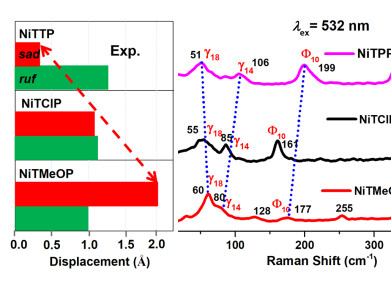Mass spectrometry & spectroscopy
What is Food Fraud?
Jul 17 2022
Fraud is one of the biggest and most expensive challenges faced by the food and beverage industry. The cost is enormous, with some analysts warning economically motivated food fraud drains up to US$40 million a year from the global economy.
The issue is so serious that many countries have established agencies dedicated to combating food fraud. In the UK, the National Food Crime Unit (NFCU) operated by the Food Standards Agency was set up to prevent economically motivated food fraud across the country. The unit was launched in the aftermath of the horse meat scandal in 2013, which saw beef products across Europe adulterated with horse meat. In some cases, products advertised as beef contained 100% horse meat. The scandal rocked the European food market, shocked consumers and underscored the need for strict food standards laws.
“We define food crime as serious fraud and related criminality in food supply chains. This definition also includes activity impacting on drink and animal feed. It can be seriously harmful to consumers, food businesses and the wider food industry,” reads a statement issued by the Food Standards Agency.
Types of food fraud
The NFCU sorts food crime into the following categories:
-
Theft
Intentionally stealing food, drink and animal feed products to resell for financial gain. The Great Canadian Maple Syrup Heist, which saw more than 3000 tonnes of syrup stolen from a Quebec processing facility between 2011 and 2012, is one of the most famous cases of food theft. The value of the stolen maple syrup was estimated at almost CAD$19 million.
-
Illegal processing
Slaughtering meat or packaging other food products in illegal premises. This category also includes the use of unauthorised slaughter and/or food preparation techniques.
-
Waste diversion
Reclaiming disposed food and redirecting it back into the supply chain for financial gain.
-
Adulteration
Adding a foreign substance that doesn’t appear on the product label to inflate quality or lower processing costs. For example, watering down extra virgin olive oil with sunflower oil.
-
Substitution
A product or ingredient is replaced with an inferior alternative. Honey is a common target, with dishonest producers diluting “pure” products with sucrose syrup.
-
Misrepresentation
Incorrect labelling or marketing techniques are used to deliberately deceive buyers. For example, Chinese-grown lemons are marketed and packaged as lemons grown in South Africa and sold by Europe-based fresh fruit giant, Unifrutti.
-
Document fraud
False documents are created to deceive buyers. This often occurs as ingredients travel along the supply chain.
While food fraud is rampart, advances in science and technology are helping the industry tackle crime head on. Foodomics, a discipline that uses omics technologies to analyse food at the molecular level, plays a critical role in assessing quality, tracking origins and preventing fraud. Find out more in ‘A Complete Guide to Food Fraud & Foodomics’. Or read 'Accurate Testing Keeps Farm Animals Healthy' to discover the importance of testing on animals at the very start of the food production chain.
Digital Edition
Lab Asia 32.2 April
April 2025
Chromatography Articles - Effects of small deviations in flow rate on GPC/SEC results Mass Spectrometry & Spectroscopy Articles - Waiting for the present to catch up to the future: A bette...
View all digital editions
Events
Apr 22 2025 Hammamet, Tunisia
Apr 22 2025 Kintex, South Korea
Analytica Anacon India & IndiaLabExpo
Apr 23 2025 Mumbai, India
Apr 23 2025 Moscow, Russia
Apr 24 2025 Istanbul, Turkey



















